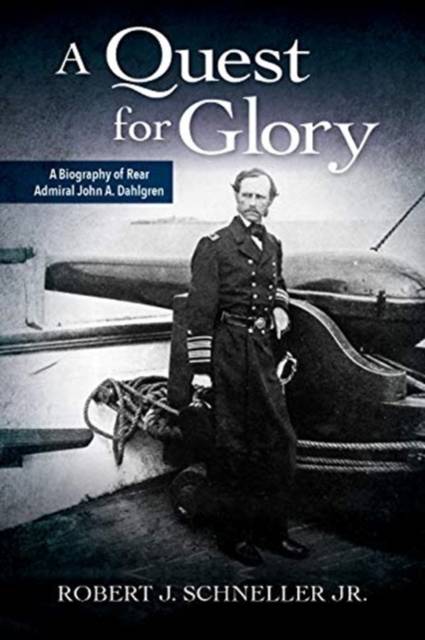
Bedankt voor het vertrouwen het afgelopen jaar! Om jou te bedanken bieden we GRATIS verzending (in België) aan op alles gedurende de hele maand januari.
- Afhalen na 1 uur in een winkel met voorraad
- In januari gratis thuislevering in België
- Ruim aanbod met 7 miljoen producten
Bedankt voor het vertrouwen het afgelopen jaar! Om jou te bedanken bieden we GRATIS verzending (in België) aan op alles gedurende de hele maand januari.
- Afhalen na 1 uur in een winkel met voorraad
- In januari gratis thuislevering in België
- Ruim aanbod met 7 miljoen producten
Zoeken
Omschrijving
To win glory and power, to be renowned throughout posterity-such was the ambition that fueled John A. Dahlgren's controversial rise to eminence during the Civil War era. While he ranks with the foremost contributors to the American naval tradition and is known as the father of American naval ordnance, personal conflicts and the lack of major victories at sea nearly obscured his historic legacy. Chief of the Bureau of Ordnance in 1862, Dahlgren was recognized as the top ordnance expert in America and was known around the world. He achieved this reputation largely for inventing the Dahlgren gun, the most powerful and reliable naval cannon of its day and the standard armament on Union warships. But because ordnance work did not yield the glory he so desperately desired, he abandoned the post of bureau chief for a fighting berth. With the help of friend Abraham Lincoln, he took command of the South Atlantic Blockading Squadron-only to preside over the Navy's greatest disappointment during the war, the failure to capture Charleston. Drawing on Dahlgren's meticulously kept diaries and records and recently uncovered family papers, author Robert Schneller describes with a biographer's sensitivity and a historian's perspective the admiral's many technical triumphs as well as the plots, duels, intrigues, and betrayals that plagued Dahlgren's life.
Specificaties
Betrokkenen
- Auteur(s):
- Uitgeverij:
Inhoud
- Aantal bladzijden:
- 476
- Taal:
- Engels
Eigenschappen
- Productcode (EAN):
- 9781682475119
- Verschijningsdatum:
- 1/03/2020
- Uitvoering:
- Paperback
- Formaat:
- Trade paperback (VS)
- Afmetingen:
- 152 mm x 229 mm
- Gewicht:
- 703 g

Alleen bij Standaard Boekhandel
+ 74 punten op je klantenkaart van Standaard Boekhandel
Beoordelingen
We publiceren alleen reviews die voldoen aan de voorwaarden voor reviews. Bekijk onze voorwaarden voor reviews.









